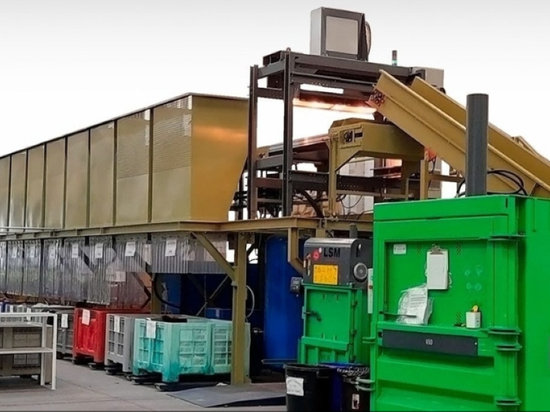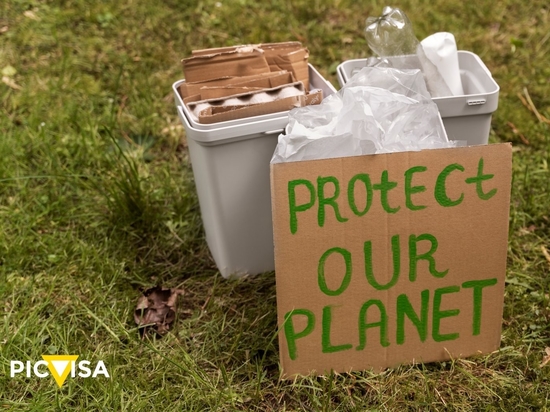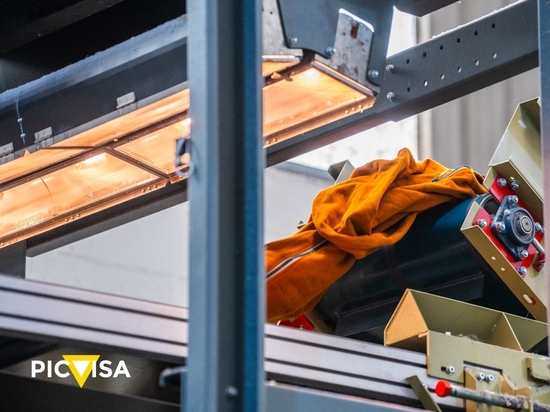
#Industry News
ADVANCES IN METAL WASTE RECYCLING: THE CHALLENGE OF METAL FLAKES IN EUROPE
ADVANCES IN METAL WASTE RECYCLING: THE CHALLENGE OF METAL FLAKES IN EUROPE
ADVANCES IN METAL WASTE RECYCLING: THE CHALLENGE OF METAL FLAKES IN EUROPE
by Picvisa | Dec 13, 2023 | Other materials recycling glass
In Europe, the management of metal waste represents one of the most demanding challenges regarding materials present in municipal solid waste (MSW).
Both in terms of the volume generated and the complexity of their identification, selection, and treatment, metals occupy a prominent place in the European sustainable agenda for the next ten years.
According to the most recent data published by the European Environment Agency, the production of metal waste in Europe experiences steady growth, stemming both from an increase in industrial activity and changes in consumption patterns.
Metal waste (including ferrous and non-ferrous metals) represents a significant fraction of industrial and consumer waste.Its proper management is not only fundamental to reduce environmental impact but also to recover very valuable resources that would otherwise be lost.
The effective classification of metals, and especially of metal flakes (metal shavings), is crucial for their reuse and to ensure proper recycling.
SEPARATION AND RECYCLING OF METAL FLAKES: A COMPLEX AND HIGH-VALUE TASK.
The classification and separation of metal flakes are considerably more complex compared to other materials such as plastic, textiles, or glass. Unlike these, metal flakes require extremely advanced identification and classification technologies due to their heterogeneity and variable properties:
Diversity of materials: Metal shavings can come from a wide range of products and industrial processes. They may be composed of different types of metals, such as iron, aluminum, copper, and others. Each metal has unique properties and requires different processing methods for recycling.
Variable size and shape: Metal shavings are often very small and of irregular shapes. Classification techniques that work for larger metal pieces are not always effective for these small shavings.
Contamination and coatings: Many metal shavings are contaminated with oils, paints, or plastic coatings used during manufacturing processes. These impurities must be removed before recycling through additional cleaning and separation processes.
Detection and technological repair: The accurate identification of different types of metal shavings requires very advanced technology. Systems based on artificial vision and sophisticated sensors are essential to distinguish between different types of metals. Highly sensitive, precise, and effective systems like ECOFLAKE are needed.
Specific recycling processes: Once identified and separated, the different metals require specific recycling processes (recycling of aluminum is very different from recycling iron, for example). Multiple processing streams in a recycling facility are needed to process different types of metal flakes.
Economic and energy efficiency: Maximizing the recovery of valuable metals from metal flakes while minimizing energy use and operational costs is a demanding challenge. Recycling facilities must balance process efficiency with economic viability.
Environmental Regulations: Compliance with strict and ambitious environmental regulations in metal processing and recycling also adds complexity.
Minimizing environmental impact and promoting the valorization of metal waste.
If not properly managed, metal waste can pose serious risks in landfills and the natural environment.
Metal waste, especially when it includes heavy metals, is not only difficult to decompose but can also release toxic substances into the soil and water, affecting both ecosystems and human health.
Heavy metals from metal waste, such as lead, mercury, and cadmium, can seep into the soil and reach groundwater sources. Cleaning and recovering soils contaminated by metal waste is a technically delicate process with high economic costs.
For all these reasons, efficient separation and classification, recycling, and safe reuse of metal waste are crucial, and advanced technologies such as those developed by PICVISA play a vital role in the effective identification and separation of metal flakes, contributing to mitigating environmental and health risks and enhancing the valorization of this type of waste.
THE IMPORTANCE OF METAL RECYCLING IN THE CIRCULAR ECONOMY.
Metal recycling in Europe is crucial in the transition to a circular and sustainable economy.
Within the European Union’s Environmental Agenda, metal recycling is a cornerstone for reducing dependence on virgin raw materials and minimizing the environmental impacts associated with mining and the production of new metals.
The recovery of metals such as lithium, nickel, and cobalt, considered strategic resources, tops the priorities of EU environmental policies, which have set very ambitious recovery and recycling targets.
By efficiently recycling metal waste, not only are valuable and increasingly scarce resources conserved, but the carbon footprint is also significantly reduced, contributing to a more sustainable future.
Currently, in the TOP5 of metals with the highest recycling rate in Europe are, in this order: steel, aluminum, copper, lead, and zinc. Various European legislations have been implementing specific regulations to improve the collection and recycling of metal waste.
These regulatory frameworks place special emphasis on the efficient management of electronic waste and end-of-life vehicles, two sectors that are key sources of precious and rare metals.
Germany: its recycling systems are among the most efficient in Europe. Germany has established a robust waste management system that includes the effective collection and recycling of a wide variety of materials, including metals.
Sweden: has implemented innovative recycling and waste management policies, including incentives for the collection and recycling of metal waste. It is also the country that carries out the most intense work in citizen awareness and education.
Netherlands: have been pioneers in the implementation of advanced waste management systems and their recycling rates are among the highest on the continent.
Belgium: leads the recycling rates of MSW and its policies for the management of metal waste are considered the most demanding in Europe.
METAL RECYCLING AND CO2 EMISSION REDUCTION, A GREAT OPPORTUNITY FOR EUROPE
Parallel to the increase in efforts to achieve the best possible selection and recycling system for metal waste and critical raw materials, Europe is investing in the development of hydrogen as a clean and sustainable energy source.
Especially in the steel industry, green hydrogen offers an alternative to reduce the carbon footprint, demonstrating how innovation in clean energies and metal recycling can work together towards a future with fewer CO2 emissions.
The path to greater efficiency in metal recycling and the adoption of green hydrogen as a widely used fuel is currently in a phase that presents economically and environmentally very attractive opportunities in Europe: the creation of jobs in the green sector, international leadership in sustainable technologies, and the consolidation of a robust circular economy.
Europe’s focus on metal recycling and the drive towards green hydrogen can serve as a model for other regions. The joint effort of the industrial ecosystem and the political sphere not only drives environmental sustainability but also establishes new standards in the global economy.
BOOSTING THE RECYCLING OF METAL FLAKES TO PRESERVE RESOURCES AND THE ENVIRONMENT.
The evolution in the classification of metal flakes and in the recycling of metal waste is a good example of progress in technological innovation and commitment to sustainability by all sectors involved.
With technologies like ECOFLAKE from PICVISA, the recycling sector is well equipped to face current and future challenges, ensuring efficient and sustainable identification, separation, and management of metal waste in Europe and beyond.
ECOFLAKE uses advanced artificial vision and optical sorting technologies to identify and classify metal flakes in a highly efficient manner, allowing precise separation and facilitating efficiency in subsequent recycling processes of these materials.
From PICVISA, we continue to innovate and advance efficiency in the separation of metal waste, and other materials that are part of MSW, directly supporting the EU’s goals for a more circular and green economy.”





